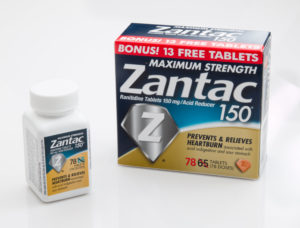Proactive medication management
Long-term care (LTC) pharmacists are geriatric medication experts. In the past, LTC pharmacists have been most recognized for their efforts in helping to keep long-term care (LTC) facilities in compliance with regulatory requirements. However, as the healthcare landscape moves toward outcome-based reimbursement and value-based purchasing, LTC communities are wise to focus on the LTC pharmacists’ value in improving medication-related outcomes.
The primary referral sources for LTC facilities are hospitals, which have increased expectations around quality with a focus on reducing length of stay, discharging patients to less costly settings, fewer rehospitalizations and greater interest in five-star ratings. LTC and post-acute providers who demonstrate efficient, high-quality care will become the providers of choice within preferred provider networks. Additionally, the Centers for Medicare & Medicaid Services (CMS) continues to create direct incentives to improve and is establishing a mandatory skilled nursing facility (SNF) Value-Based Purchasing program which will affect payments beginning in 2019 and has finalized inclusion of a 30-day, all-cause readmission measure.
Providing effective patient-centered care requires considerable teamwork. Consider the statement regarding teams made by the American College of Physicians in 2013: “Although physicians have extensive education, skills, and training that make them uniquely qualified to exercise advanced clinical responsibilities within teams, well-functioning teams will assign responsibilities to advanced practice registered nurses, other registered nurses, physician assistants, clinical pharmacists, and other health care professionals for specific dimensions of care commensurate with their training and skills to most effectively serve the needs of the patient.”
The statement emphasizes the need for well-designed functional “teams” in order to better manage resident care, while also acknowledging the need for a pharmacist to be an integral participatory member of the healthcare team.
Optimizing medication management is complex and is most effective when there are cooperative relationships among physicians, nurses, nurse aides, pharmacists, other healthcare professionals, residents and families. A team approach promotes optimal use of medications, reduces adverse drug events (ADEs) and promotes cost-effective drug-prescribing practices. This collaboration provides better insight around the resident’s needs, typical behaviors, and responses; while also increasing the number of persons who can observe the resident before and after a medication is started.
LTC facilities manage the care for medically complex patients who routinely receive 8 to 10 medications per day to manage multiple chronic conditions. LTC pharmacists focus on optimizing medication management and improving quality outcomes and have become more involved with prescribers, nurses, other healthcare team members, family members and residents.
Adverse drug events
At least monthly, the LTC pharmacists review each resident’s medical record and conduct a comprehensive medication regimen review. Based on this review and interactions with the healthcare team, LTC pharmacists make recommendations to improve medication management. These may include recommendations to adjust medication dosages, discontinue inappropriate or unnecessary medications, monitor and make recommendations on medication therapy based on patient vital signs or labs based on patient specific goals, consider cost effective alternative therapies and/or consider treatment options per evidence-based clinical practice guidelines. The value of medication regimen reviews by LTC pharmacists has been recognized as improving prescribing and potentially decreasing costs.
Inappropriate medication use can lead to substantial healthcare costs, including increased ADEs, emergency room visits and hospitalizations. One of the most important roles of LTC pharmacists is to evaluate the entire medication delivery process to help identify and prevent ADEs. With the pending CMS focus on 30-day rehospitalizations rates, ADEs should be viewed as one of the most likely contributors of potential negative outcomes. Studies suggest that at least one in seven LTC residents will be hospitalized as a result of an ADE.
CMS recently initiated “Medication Adverse Drug Event” focus surveys noting that one in three SNF residents is harmed by an adverse event or temporary harm event within the first 35 days of a SNF stay, and 37 percent of those adverse events are related to medication. The second-most frequent cause of ADEs is excessive bleeding related to anticoagulant use—causing harm ranging from hospitalization to death. As many as 50 percent of ADEs are believed to be preventable, and LTC pharmacists can provide essential education to LTC team members on how to recognize the potential side effects and triggers of ADEs.
When quality-of-care issues—including medication management—are addressed utilizing a team approach, patients are more likely experience positive quality outcomes. The facility can achieve additional benefits related to their financial viability and business outlook. Facility-wide improvement initiatives with predetermined outcome goals and measures are essential in order to achieve optimal medication management practices.
Medication reconciliation
Medication reconciliation is the process used to identify medication discrepancies and prevent medication errors by evaluating any medication orders at each point during a person’s transition of care. Medication reconciliation is a priority across healthcare settings, since studies have shown that unintentional medication discrepancies occur commonly during transitions of care–and about one-third of the discrepancies have the potential to cause discomfort or deterioration. Studies have shown that medication reconciliation interventions conducted by pharmacy staff are the most effective, especially interventions that target high-risk residents.
Adherence to clinical practice guidelines is vital in the management of common chronic medical conditions including chronic heart failure, chronic obstructive pulmonary disease, hypertension and stroke. The effective management of these conditions is also common in risk-based agreements. Residents who receive disease state management services from an LTC pharmacist are four to seven times more likely to be compliant with these evidence-based guidelines, which can improve therapeutic outcomes and reduce negative events with fewer rehospitalizations.
LTC pharmacists’ participation in quality assurance and process improvement (QAPI) efforts and other risk management processes is important. LTC pharmacists can help assess trends in medication use, assist with root-cause analysis and help implement and monitor process improvement plans. Common efforts undertaken by LTC pharmacists include:
- Optimizing diabetes therapy for patients receiving sliding-scale insulin
- Implementing processes to identify and discontinue high risk medications including antipsychotics and BEER’s medications Identify and providing education to prescribers who have low compliance rates around clinical practice guidelines
- Identify and increasing focus on patients at highest risk of rehospitalizations.
While direct face-to-face collaboration among LTC pharmacists, prescribers and other healthcare team members is often preferable, technologies such as videoconferencing can allow pharmacists to participate on teams and even review high-risk residents from offsite. Many LTC facilities have electronic medical record capabilities, giving pharmacists off-site access to essential information, including nursing notes, care planning information, the medication administration record, vital signs, behavior monitoring records and assessments. Electronic access to clinical data enables LTC pharmacists to respond more quickly to requests to review residents who may be experiencing a change of condition, such as a fall, weight loss or increased confusion. By identifying and addressing potential medication-related issues early on, pharmacists can help improve resident care and reduce negative outcomes.
Improving medication optimization will continue to grow in importance in the future, both in terms of improving patient outcomes and also helping with long-term care facility viability. By increasing the focus on appropriate medication management including the prevention of adverse drug events, significant quality outcomes can be achieved. Ultimately, both patients and LTCF will benefit through increased collaboration between LTC pharmacists and other members of the facility healthcare team.
 Mark D. Coggins, PharmD, CGP, FASCP, is senior director of pharmacy services for skilled nursing centers operated by Diversicare in nine states, and is a director on the board of the American Society of Consultant Pharmacists. He was nationally recognized by the Commission for Certification in Geriatric Pharmacy with the 2010 Excellence in Geriatric Pharmacy Practice Award.
Mark D. Coggins, PharmD, CGP, FASCP, is senior director of pharmacy services for skilled nursing centers operated by Diversicare in nine states, and is a director on the board of the American Society of Consultant Pharmacists. He was nationally recognized by the Commission for Certification in Geriatric Pharmacy with the 2010 Excellence in Geriatric Pharmacy Practice Award.
I Advance Senior Care is the industry-leading source for practical, in-depth, business-building, and resident care information for owners, executives, administrators, and directors of nursing at assisted living communities, skilled nursing facilities, post-acute facilities, and continuing care retirement communities. The I Advance Senior Care editorial team and industry experts provide market analysis, strategic direction, policy commentary, clinical best-practices, business management, and technology breakthroughs.
I Advance Senior Care is part of the Institute for the Advancement of Senior Care and published by Plain-English Health Care.
Related Articles
Topics: Articles , Clinical , Executive Leadership , Risk Management











